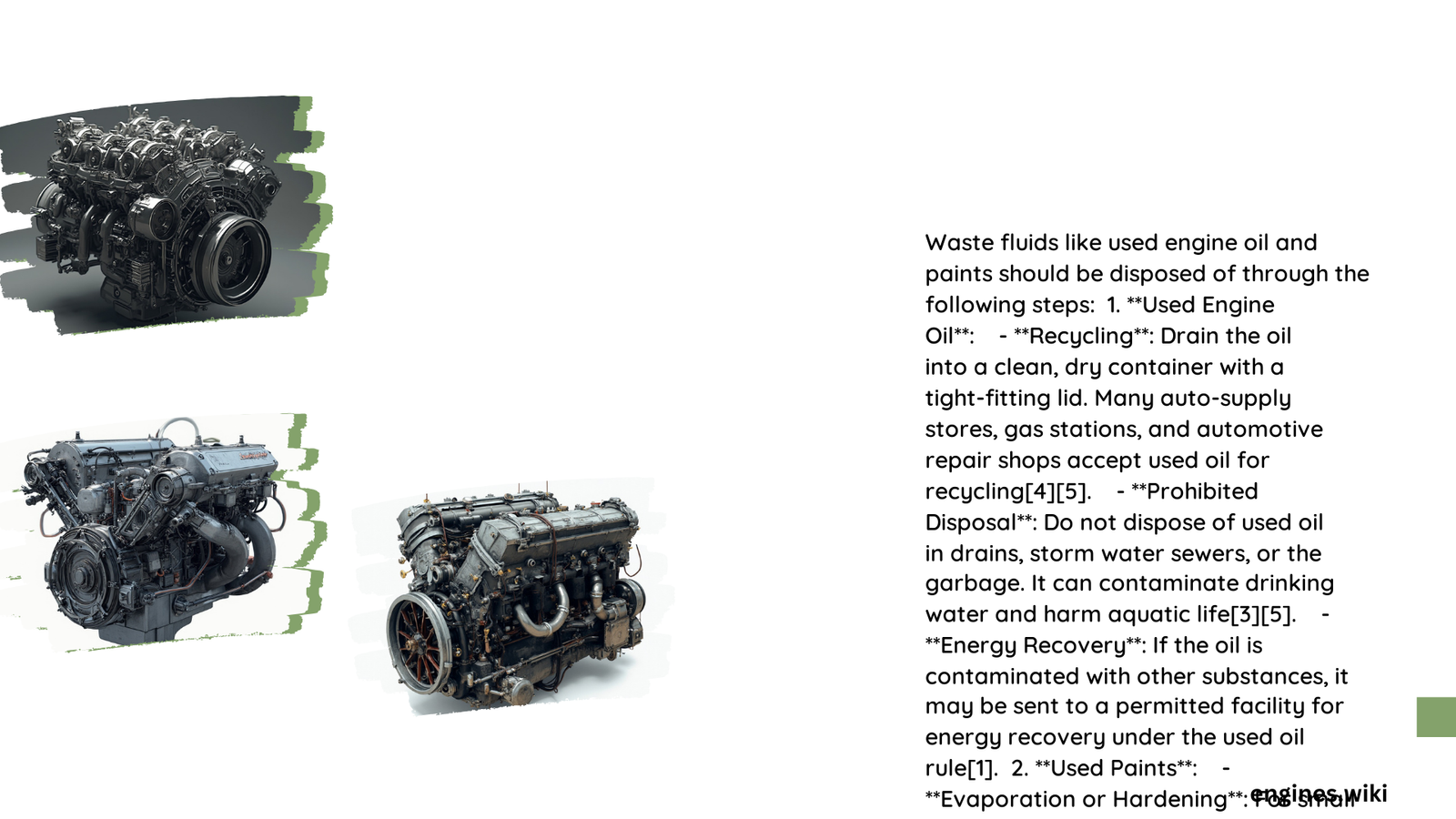Proper disposal of waste fluids like used engine oil and paints is critical for environmental protection and public safety. Improper disposal can lead to significant environmental contamination, groundwater pollution, and potential legal consequences. This comprehensive guide provides detailed strategies for responsibly managing and recycling various types of waste fluids, ensuring minimal environmental impact and maximum resource conservation.
What Are the Primary Challenges in Waste Fluid Disposal?
Waste fluids present unique challenges due to their potential environmental and health risks. Different types of fluids require specific handling and disposal techniques to prevent contamination and ensure safe recycling.
How to Collect Used Engine Oil Safely?
Collection Methods
- Use Dedicated Containers
- Select leak-proof containers specifically designed for oil storage
- Ensure containers are clean and free from other chemical residues
-
Label containers clearly with contents and date of collection
-
Storage Recommendations
- Store in a cool, dry area away from direct sunlight
- Keep containers sealed when not in use
- Prevent mixing with other fluids or chemicals
What Are the Recycling Techniques for Used Engine Oil?
| Recycling Stage | Process Description | Key Objectives |
|---|---|---|
| Dewatering | Separate water from oil | Remove moisture content |
| Filtration | Remove solid impurities | Improve oil quality |
| Demineralization | Extract inorganic materials | Prepare for re-refining |
| Fractionation | Separate oil components | Create new base products |
How Should Paints Be Disposed?
Paint Disposal Strategies
- Liquid Paint Disposal
- Allow small quantities to dry completely
- Mix with absorbent materials like cat litter
- Dispose of dried paint in regular trash
-
Never pour liquid paint down drains or on ground
-
Large Paint Quantities
- Contact local hazardous waste collection centers
- Participate in community paint recycling programs
- Donate unused paint to community organizations
What Are the Legal Considerations?
Regulatory Compliance
- Check local and state regulations for waste fluid disposal
- Obtain necessary permits for large-scale disposal
- Maintain proper documentation of disposal activities
- Work with certified waste management professionals
What Precautions Should Be Taken?
- Always wear protective equipment
- Avoid direct skin contact with waste fluids
- Use appropriate transportation containers
- Follow local environmental guidelines
- Never mix different types of waste fluids
Environmental Impact Considerations
Proper waste fluid disposal:
– Reduces environmental contamination
– Conserves natural resources
– Minimizes groundwater pollution
– Supports circular economy principles
Cost-Effective Disposal Methods
- Utilize local recycling centers
- Participate in community waste collection events
- Invest in proper storage equipment
- Train staff on correct disposal procedures
Final Recommendations

Responsible waste fluid disposal requires a comprehensive approach combining proper collection, storage, transportation, and recycling techniques. Always prioritize environmental safety and legal compliance.
Pro Tips
- Research local disposal regulations
- Invest in quality storage containers
- Educate team members about proper procedures
- Regularly audit waste management practices
Reference:
– EPA Waste Disposal Guidelines
– Local Recycling Centers Directory
– Automotive Fluid Recycling Resources
